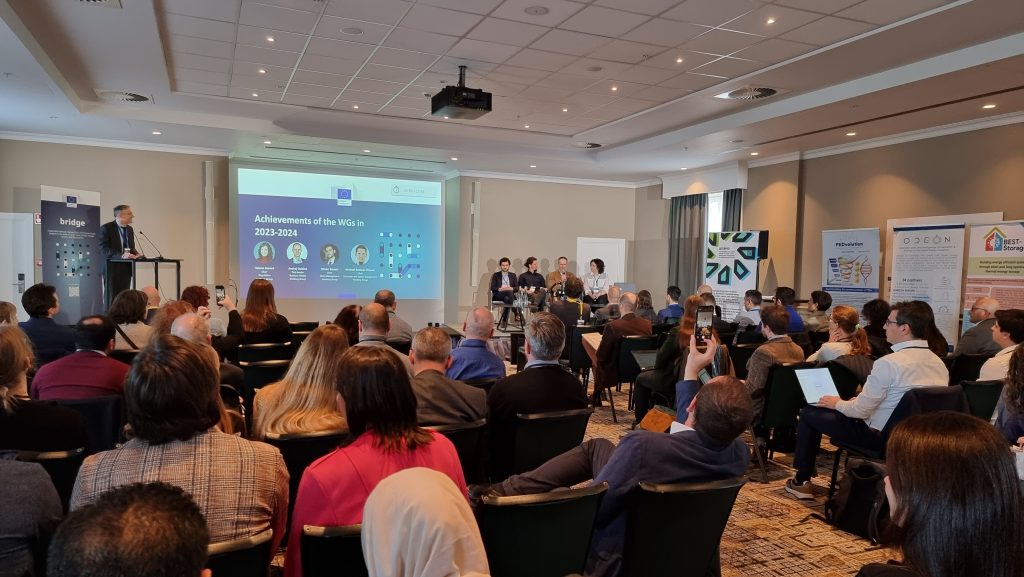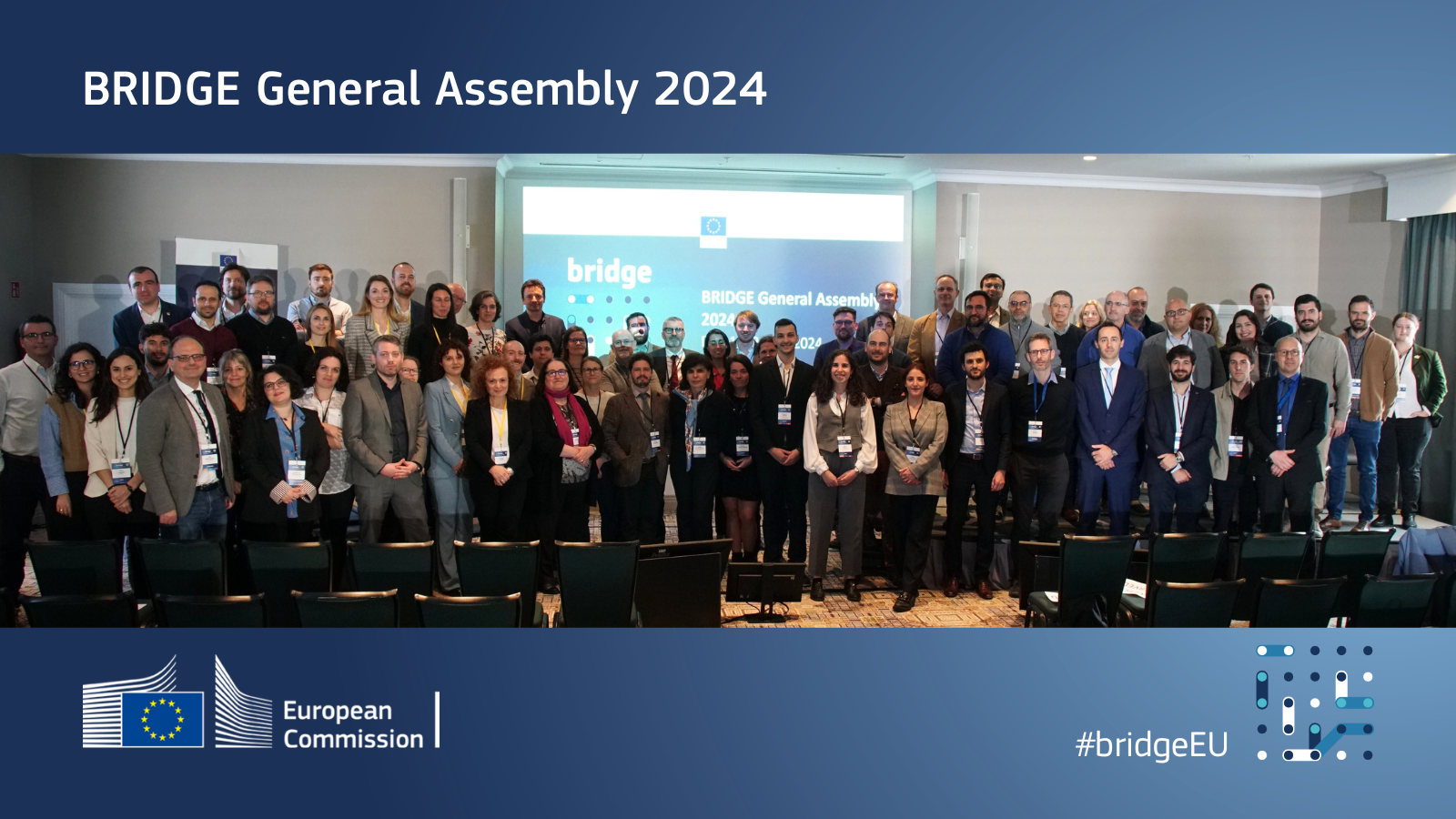ENERGETIC project attends the BRIDGE General Assembly empowering energy innovation
The European Commission BRIDGE General Assembly took place this week on 9 and 10 April, bringing together a wide range of stakeholders from across the energy sector to share insights, discuss achievements, and pave the way for future collaboration. Among the participants is ENERGETIC, standing at the forefront of innovation in energy storage.
What is BRIDGE?
BRIDGE, an initiative by the European Commission, serves as a meeting point for various Horizon 2020 and Horizon Europe projects focusing on Smart Grid, Energy Storage, Islands, and Digitalisation.
BRIDGE counts with 190 projects, 174 of which are currently ongoing. It aims to address interdisciplinary issues that arise in demonstration projects, fostering continuous knowledge exchange between participants and paving the way for future innovation. By bringing together researchers, industry representatives, and policymakers, the programme enables cross-sectoral collaboration and helps to align research and innovation efforts with policy objectives.
The BRIDGE General Assembly 2024
The agenda for the two-day event was packed with informative sessions and interactive discussions, giving participants an overview of the achievements and challenges faced by projects within the BRIDGE ecosystem.
Day 1 began with a warm welcome from Vincent Berrutto, Head of Unit at the European Commission, and representatives from PwC, who referred to BRIDGE as a forum for exploiting synergies between projects and making a collective voice heard by policymakers, industry and stakeholders. This was followed by a policy update session from representatives of DG ENER who provided updates on the EU Action Plan for grids, the Network code on demand response, and the Net Zero Industry Act. A plenary session highlighted the achievements of the four BRIDGE Working Groups (Regulation, Business Models, Data Management and Consumer and Citizen Engagement) in 2023-2024.
The day continued with a presentation of 6 completed BRIDGE projects (Platone, OneNet, Trinity, X-Flex, EUniversal, Ebalance-plus), outlining the results and KERs achieved by the projects, their impact and post-conclusion results, and the benefits obtained from BRIDGE. Finally, through an interactive session, different questions were raised which revealed that Energy Storage and Mobility, which are at the core of ENERGETIC, are among the most relevant topics in BRIDGE for 2024.
The second day started with a policy updates session from DG CNECT and DG ENER. This highlighted the European Data Strategy, which has encompassed a cross-sectoral legislative framework including the Data Governance Act and the Data Act, which entry into force took place in January 2024; to achieve common European data spaces.
Four parallel sessions took place during the day drawing conclusions from the achievements of the different BRIDGE working groups over the last year as well as the objectives and next activities for 2024.
Key outcomes from the BRIDGE Working Groups
In the Regulation working group, lessons learned from 2023 highlighted the importance of consumer-centricity and the complexity of market design and sector integration. The group aims to strengthen synergies and accelerate interactions between BRIDGE partners.
The Business Models working group recognises the importance of supporting projects at each stage of their activities, standardising the quantification of business plans and helping them to identify how to use data spaces. The group intends to provide tailored support to projects, foster market links and share best practices.
In the realm of Data Management, the readiness of a use cases repository was emphasised. The group remains committed to implementation support, dissemination through multiple channels, and the promotion of interoperability among home appliances.
Simultaneously, the Consumer and Citizen Engagement working group supports the citizens and consumers perspective in advocating for sustainable and inclusive solutions. The need for standardised engagement methodologies underlined, and the group aims to increase its collaboration with relevant stakeholders and enhance accessibility of information.

